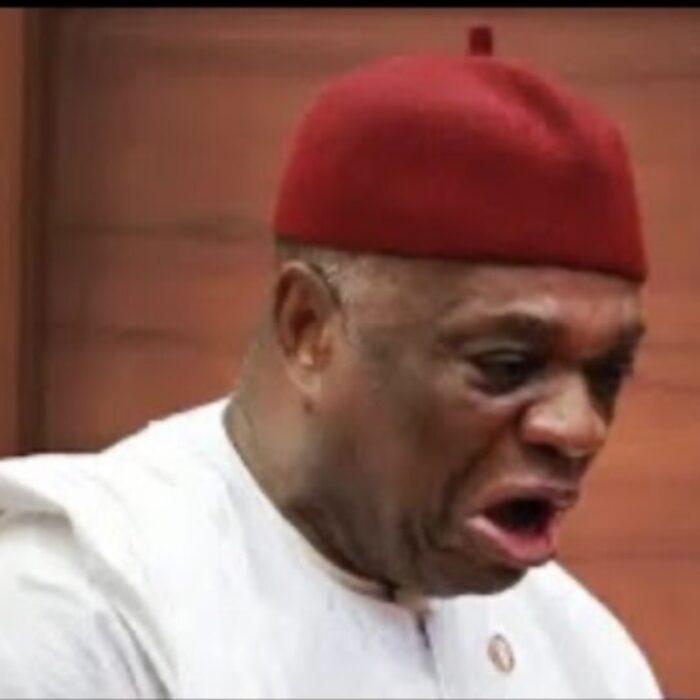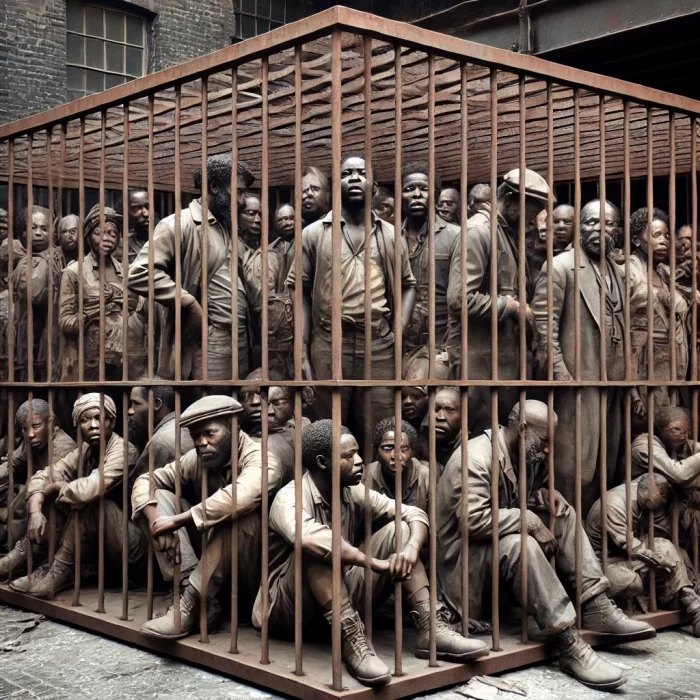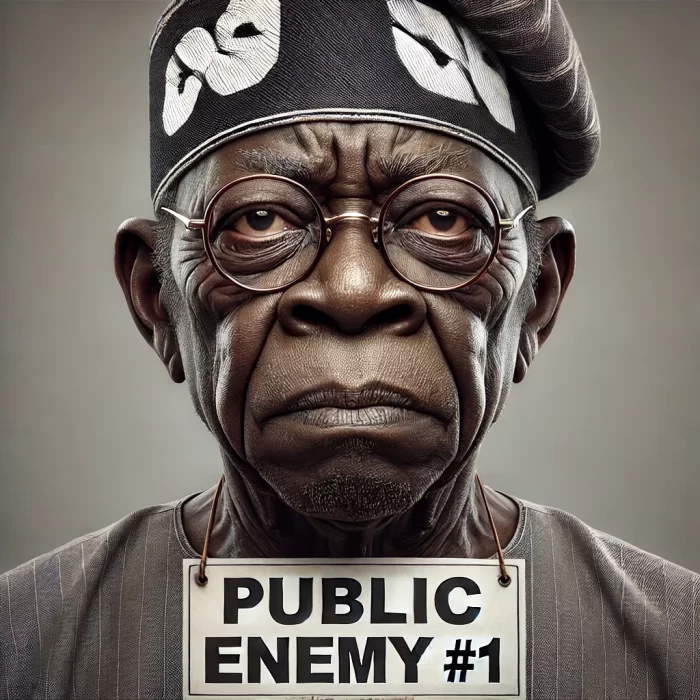By Nnaoke Ufere, PhD
As Nigeria teeters on the brink of economic collapse, President Bola Tinubu has chosen this critical moment to flee the pressures of governance for yet another “working visit” to Paris—his fifth since last year. According to Bayo Onanuga, Special Adviser to the President on Information and Strategy, the trip is meant to “reflect on and appraise his administration’s mid-term performance and assess key milestones.”
But one must ask: why can’t this reflection take place in Abuja, the seat of government? Why must a president, presiding over a nation in crisis, drag an entourage of cabinet ministers, bureaucrats, and aides halfway across the world at taxpayers’ expense to do what could—and should—be done at home?
This is not a working visit; it is a tone-deaf display of disregard and detachment. At a time when Nigerians are being crushed by inflation, joblessness, and economic anxiety, the president and his team are flying to Paris as if serious governance requires a change of scenery.
In the face of mounting global instability, this goes far beyond bad optics or poor judgment—it stands as the most glaring and damning example yet of Tinubu’s disgraceful abdication of leadership.
The President of France is currently occupied with high-level meetings alongside EU leaders, focusing on critical issues such as responding to Trump’s tariff measures and advancing peace efforts in the Russia-Ukraine conflict. With such pressing priorities, it’s clear that hosting President Tinubu is not on Macron’s agenda.
This raises a fair question—who, exactly, is Tinubu meeting in Paris? At a time when Nigeria urgently needs focused leadership at home, the relevance and timing of this visit are difficult to justify.
While Nigerians struggle with worsening economic hardship, hunger, and unchecked violence—from Uromi to countless other parts of the country—President Tinubu sets off yet again for Paris. It’s a deeply troubling pattern that has come to define his presidency: a consistent absence, not just physically, but in the fundamental responsibility of leadership.
In the February 19 editorial, titled “Nigeria Risks Retaliatory Tariffs Under Trump’s Reciprocal Trade Order,” the African Mind Journal issued a direct and urgent warning to the Nigerian government. The United States, under the Trump-era trade doctrine, was preparing to impose punitive tariffs on nations it viewed as uncooperative or non-reciprocal in trade relations. It called on the Nigerian government to act decisively—engage diplomatically, renegotiate trade terms, and protect the nation’s fragile economy.
My contacts within the Trump administration confirmed that the warning signs were clear and came well in advance. Yet Tinubu’s government chose to ignore them. Instead of mounting a diplomatic response, they appeared more preoccupied with planning another Paris excursion—booking hotels, restaurants, perhaps even spas. There was no outreach, no backchannel diplomacy, no effort whatsoever to shield Nigeria from the looming fallout.
The silence from Aso Rock was deafening. And now, the consequences are here: a devastating 14% tariff on all Nigerian goods entering the U.S., hitting oil and gas—the lifeblood of Nigeria’s economy—particularly hard.
The 14% tariff is projected to have a significant financial impact, according to experts. Based on 2024 trade data, Nigeria exported goods worth approximately $5.7 billion to the U.S. Applying the 14% tariff to this export value results in an estimated additional cost of about $798 million annually. This figure represents the added expense that Nigerian exporters would incur if the volume and value of exports remain consistent with 2024 levels.
As more of Nigeria’s key trading partners adopt restrictive trade measures, the country’s $45 billion in exports—excluding the U.S.—is increasingly at risk of significant disruption and decline. This is devastating in an already weak economy. In all scenarios, trade restrictions and tariffs harm Nigeria’s economy—through lower export earnings, job losses, and reduced foreign exchange inflow.
This economic blow comes as benchmark oil prices fall from $73 to $64 per barrel and OPEC+ plans to ramp up production, pushing prices even lower. For a country that depends on oil for the vast majority of its export earnings and foreign exchange, this is a fiscal nightmare.
Worse still, the sharpest decline may lie ahead: as the world edges closer to a deeper economic recession and the Ukraine war subsides, Russia is poised to flood the market with even more oil, further depressing global prices and tightening the noose around Nigeria’s fragile economy.
Simultaneously, global economic instability is closing off avenues for foreign loans and credit, leaving Nigeria increasingly isolated and vulnerable. Under a renewed Trump administration, Nigeria’s access to World Bank credit could face serious tightening, as the U.S.—the institution’s most powerful shareholder—may push to restrict funding to governments it sees as irresponsible or corrupt.
With mounting trade tensions, weak economic reforms, and a leadership widely viewed as ineffectual, Nigeria risks being sidelined, starved of critical funding when it needs it most. This is a triple shock to the system—one that could have been at least mitigated, if not avoided, by competent leadership.
And yet, as the crisis worsens, Tinubu remains absent—on a boondoggle thinly disguised as a working visit, utterly detached from the decisive, hands-on leadership this moment so urgently demands.
Instead, Nigeria got negligence. Where is the emergency task force to manage the fallout? Where is the economic strategy to stabilize the naira or protect domestic industries from the ripple effects of these tariffs? Where are the efforts to reach out to American trade officials, to negotiate, to defend the interests of Nigerian exporters?
Nowhere.
What we have, instead, is a president who treats the collapse of Nigeria’s economy as a background nuisance to his personal itinerary. While other nations responded to the same global pressures with proactive diplomacy and policy agility, Nigeria remained paralyzed—its leadership either asleep or entirely disengaged. Tinubu’s inaction is not a policy failure—it is a national betrayal.
Meanwhile, inflation continues to rise, youth unemployment deepens, state governments are approaching insolvency, and the average Nigerian is asked to endure more suffering without relief. The leader responsible for confronting this moment has instead chosen leisure over leadership.
The administration’s attempt to brand the president’s trip as a “working visit” is nothing short of insulting. Nigerians are not fooled—no credible international negotiation is taking place over champagne brunches in Paris. This is performative governance, empty of substance and offensive in its timing.
The presidency is not a vacation. It is not a ceremonial title to be worn while the country implodes. Tinubu’s refusal to rise to this crisis, his detachment from the consequences of his own inaction, is not just a failure of leadership—it is a profound dereliction of duty. Nigeria is burning, and the president is abroad, sipping wine.
Nigerians must remember this blatant abdication of duty when they head to the polls in 2027. In a time of crisis, leadership is not a luxury—it is a necessity. Nigeria deserves more than photo-ops abroad and empty rhetoric at home. Nigerians deserve a hands-on leader who shows up, takes responsibility, and defends the nation’s interests on the global stage—not one who disappears when the stakes are highest.
History will remember this moment. And so will the people.



